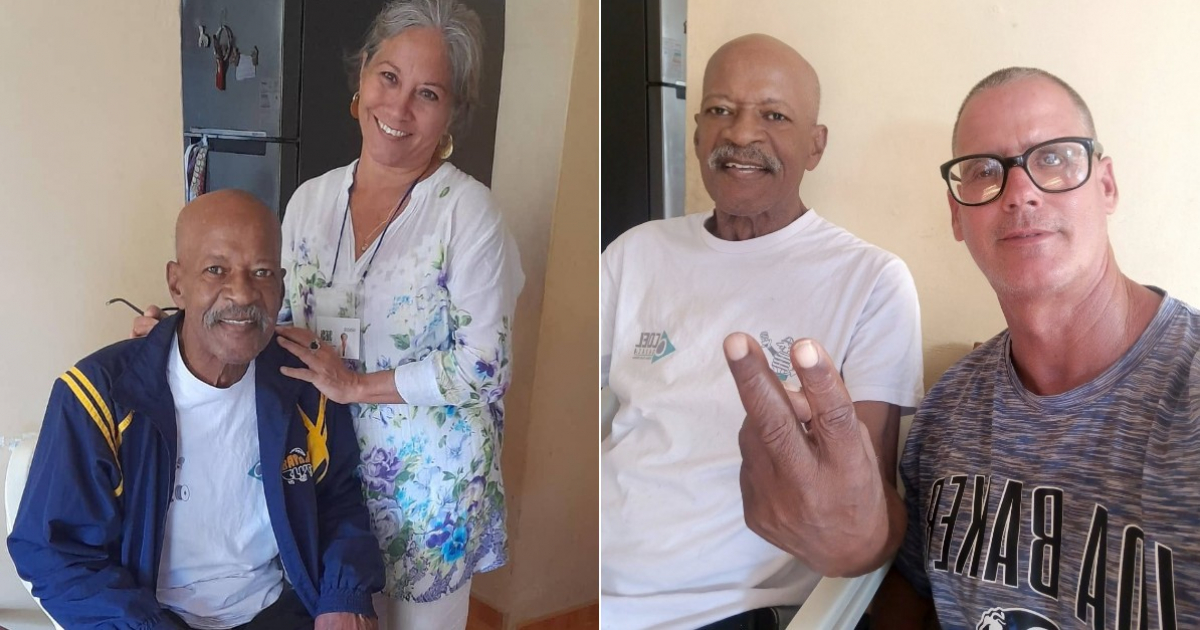Actor Samuel Claxton, a beloved figure in Cuban entertainment for many years, is making headlines once again. However, this time it's not due to a theatrical or film release. The public is rallying around him in response to a plea for help during a critical time in his life, marked by health challenges and a lack of government support.
At 82, Claxton's illustrious career in theater, film, and television spans more than five decades. Recently, he has been dealing with serious health issues. Two years ago, he underwent surgery for bladder cancer, and last year he required a percutaneous nephrostomy (a procedure involving the insertion of a catheter through the skin to the kidney for urine drainage). Despite the necessity of basic medical supplies like catheters and collection bags for his daily care, these are not provided by any official entity.
Libia Batista, a casting director, raised the alarm after visiting Claxton with a friend, urging the community to gather catheters in sizes 16, 18, and 20, along with collection bags. The response was overwhelming, with many stepping forward to help.
A Facebook user named "Alexander Gestor De Alojamientos" detailed his experience of locating Claxton and delivering not only the medical supplies he needed but also food. "I bought some catheters with what I could and received several as donations. I left him two bags of milk and a sandwich spread that Libia told me he loves. One of the donors gave me a bunch of bananas, which I also delivered. It's not much, but little by little, we can help," he explained. Alexander committed to continuing his efforts, with more supplies on the way.
His social media post included Claxton's address and phone number for those willing to contribute: Building C-28, Apt 9, Zone 6 of Alamar. The landline number is 77 65 20 61.
The online community quickly reacted. Many praised the neighbors' kindness, while others pledged to donate, visit, or simply share the information. "I helped him move a refrigerator in 1987, and I'm ready to help again," an elderly man shared emotionally. Another woman offered, "I have an 18 catheter and a urine collection bag. I'll donate them to this great actor; I wish I had more to give him what he needs."
However, there was also widespread outrage over the lack of institutional support. "A professional actor shouldn't have to rely on charity to survive. It's a shame on this system," a young man commented.
Social media has become the primary platform for organizing these grassroots initiatives. Organizations like Cubaactores and personalities such as actress Yaneisy Sánchez have joined the call for aid.
Beyond the generosity, Claxton's situation has sparked a broader discussion about the Cuban state's responsibility towards its cultural figures. "The least he should have is his medical supplies without having to ask," one comment read. This sentiment echoes the frustration many feel towards the passive stance of the Ministry of Culture and the UNEAC (Union of Writers and Artists of Cuba), which often honors artists posthumously but rarely acts swiftly in times of need.
Unfortunately, Claxton's story is not unique. More and more retired or ill artists are surviving on community goodwill as they navigate a challenging old age in a country with limited medical resources and often only symbolic recognition of their cultural contributions.
Born in Camagüey in 1943, Claxton left an indelible mark on Cuban arts. His role as Mantilla in the iconic series "Su propia guerra" made him a familiar face to millions. His film credits include "En 3 y 2," "Los días del agua," "Retrato de Teresa," "Caravana," "Operación Fangio," and "La última cena." In theater, he shone in productions like "María Antonia," "Divinas palabras," and "Santa Camila de La Habana Vieja," among others.
Despite his remarkable legacy, Claxton now relies on the goodwill of those who remember him fondly. In a nation where culture has been a flagship and ideological pillar for over half a century, it is both paradoxical and infuriating that its most distinguished figures end up neglected by the very institutions meant to protect them.
Today in Alamar, the compassion of a few has provided some relief to Samuel Claxton. Yet the question remains: How long must the dignity of our artists depend on the voluntary efforts of their community?
Community Support for Samuel Claxton
What health issues is Samuel Claxton facing?
Samuel Claxton has been dealing with serious health challenges, including a past surgery for bladder cancer and the need for a percutaneous nephrostomy, which requires ongoing medical supplies like catheters and collection bags.
How can people help Samuel Claxton?
People can assist Samuel Claxton by donating medical supplies such as catheters and collection bags, as well as food. Contributions can be sent to his address in Alamar, or by contacting his phone number for more information.
What has been the public response to Claxton's situation?
The public response has been one of solidarity and generosity, with many individuals offering to donate supplies, visit, and share information. However, there is also significant outrage over the lack of institutional support for cultural figures like Claxton.
